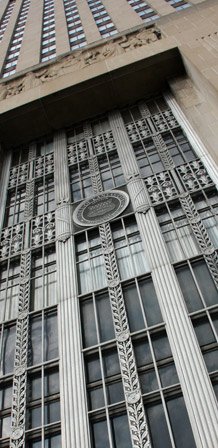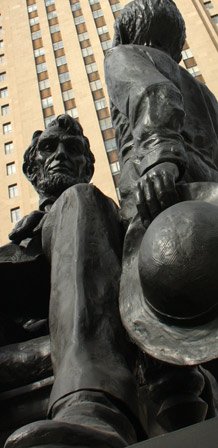In Kansas City, we have a vibrant technology and entrepreneurial community. Our Smart City program is among the best in the nation, distinguished from our peers by the level of connectivity throughout our city. Driving that success is the idea that Smart Cities are inclusive cities. In the same way that geographic divides, like Troost Avenue, plague our community with economic and social inequities, digital divides solidify lasting economic disparities between neighborhoods, creating barriers for the next generation of potential learners, inventors, and entrepreneurs. By failing to address these divides with effective policy, 30-50% of our citizens will find it more difficult to maximize their potential. That’s why last year, Kansas City implemented our Digital Equity Strategic Plan, which aims to make KC a more digitally inclusive community.
Unfortunately, our digital inclusion efforts will be severely hampered by the FCC’s recent actions regarding the Lifeline program and net neutrality rules.
The FCC voted to substantially cut funding to Lifeline, which has provided critical discounted phone and Internet services to low-income Americans, including 171,984 Missouri households. This move comes as a result of the FCC attempting to address systemic issues with fraud and overspending, created in part by a lack of oversight over phone and broadband providers. While the intentions are valid, it comes at the cost of low-income residents that are in need of affordable phone and broadband service. Consequently, the FCC is now shifting funding toward infrastructure, giving carriers subsidies to incentivize them to expand into rural areas. While infrastructure is important to digital inclusion, it’s only part of the equation and will ultimately have little value if residents are unable to afford the Internet service itself.
Additionally, the FCC is also attempting to repeal existing net neutrality rules. Recognizing that Internet access has become a necessity for survival in our interconnected world, net neutrality rules establish the Internet as a utility, requiring Internet Service Providers (ISPs) to provide equal access to the Internet to all users. Equal access ensures that all consumers, regardless of income, zip code, and perspective, can access any website or that all websites, regardless of content, size, and profit margin, are accessible to consumers. Repealing net neutrality means that ISPs will become the gatekeepers of online content, enabling them to control Internet speeds, restrict bandwidth, and create paywalls. ISPs would have the ability to, in effect, censor content based on their business interests. These policy changes further demonstrate that under FCC Chairman Ajit Pai, the FCC’s policies increasingly focus on aiding the ISPs, often to the detriment of public.
The Lifeline program and net neutrality rules are integral to creating digital inclusion in Kansas City. Without these policies, Kansas City’s low-income residents could be unable to access the Internet to apply for jobs, affordable housing and job permits, as well as find public transportation routes, Medicaid and Medicare information and education options for their children. Many of these processes are now only available online, unless the user is willing and able to travel or pay additional fees. Kansas City’s students and schools could face even greater hurdles, no longer having access to the full world wide web, but rather a selection of sites made available by the ISPs, depriving them of a 21st century education. Kansas City’s small businesses could struggle to find customers if their website and social media pages are placed behind a paywall or made completely inaccessible by ISPs. Kansas City’s veterans and military families could find it harder to stay connected with one another when the cost of the Internet services they rely on become prohibitive and services like Lifeline are cut. Without access to affordable Internet services, many Kansas Citians could be excluded from the digital economy, which is becoming a larger and larger chunk of the economy at large, and deprived of the opportunity to be a part of their community.
In Kansas City, we are one community. And in this community we place a high value on equity. When we passed our Digital Equity Plan this year, we did so to ensure that our residents have equal access to broadband Internet and the digital economy. While we have and will continue to make significant progress to facilitate access for our residents, lack of access due to unaffordability of broadband, equipment and lack of the requisite skills plague many of our low income residents despite where in the city limits they reside. The federal government should take a similar view of our nation as one community and enact and stand behind policies that benefit the nation as a whole.
Smart cities must be inclusive cities. Right now we fight for that.
TAKE ACTION
There’s still time to tell the FCC that these new rules may be good for ISPs, but they are bad for digital equity. Here’s how:
Send letters to or call the FCC.
Federal Communications Commission
445 12th Street, SW
Washington, DC 20554
Ajit.Pai@fcc.gov
Speak out on social media demanding net neutrality rules stay in place. Be sure to tag the FCC, Chairman Ajit Pai (@FCC and @AjitPai).
Provide your feedback through the FCC’s public information solicitation site at https://www.fcc.gov/ecfs/search/proceedings?q=name:((17-108)). Make sure you select the “Express” function.
In 2015, the FCC implemented the original net neutrality rules due to a great deal of public outcry and pressure. People raised their concerns and voiced their opinions and righted the course. Public outcry against these changes is our only chance to stop them.















